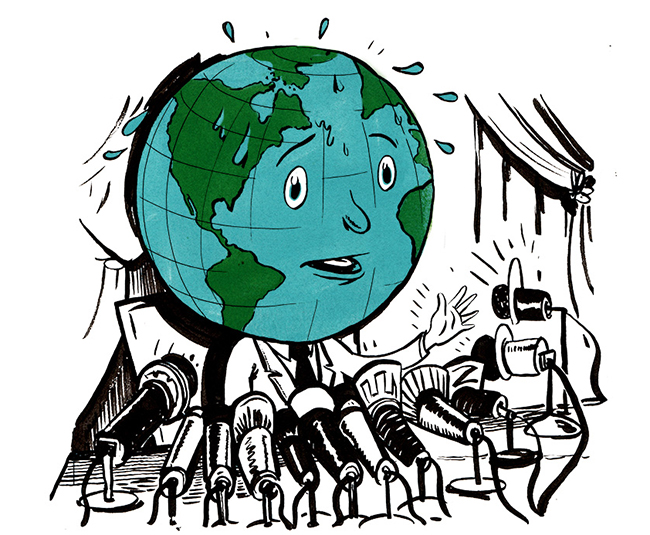ZEITGUIDE TO NIGERIA

ZEITGUIDE “GLOBAL AFFAIRS” IMAGE BY KRISTOFER PORTER
All eyes have been on Nigeria for weeks because of the horrific abduction of hundreds of schoolgirls by the Islamic extremist militant group Boko Haram (which means “western education is a sin“). As the calamity drags on, and begins to turn into a political crisis for president Goodluck Jonathan, it is clear that Nigeria is a nation where things can change quickly, for better or worse.
Yesterday, we spoke with ZEITGUIDE Fellow, Blair Miller who works in both business and philanthropy in Nigeria. She’d just returned from a trip there. “Indeed this is an atrocity,” she said, but found this ray of light: People are in the streets protesting for the government to take action, which signifies “the power of a new democracy fighting for human rights.”
Nigeria has been one of Africa’s economic success stories since its transition to civilian government just 15 years ago. With 177 million people—more than 62% of them under age 24—it is today the continent’s largest economy, already 30% larger than South Africa. The World Economic Forum on Africa is currently underway in the Nigerian capital, Abuja.
ZEITGUIDE Fellow Will McDonough, who founded Atlas Merchant Capital with former Barclay’s CEO Bob Diamond, explained why Nigeria has been so attractive to investment firms like his.
It has a growing middle class, is rapidly urbanizing and the economy has diversified. There are also now 125 million mobile device users, a burgeoning consumer class that skipped the routine of brick and mortar. “It is leapfrogging the rest of the world in terms of innovation. No legacy systems are standing in their way, so they can skip the mistakes that we’ve done in the Western World.”
In terms of infrastructure, however, a lot remains to be done, from highways to broadband. The demand for electricity outstrips the supply, though the country’s deregulating energy is drawing private investment. “The entire country presently has about 15 gigawatts of power connected to the grid to serve its population – only four of which are actually produced,” wrote GE’s John Rice. (Four gigawatts are about what California produces daily just with solar panels.) GE has committed to developing another 10 gigawatts of power production in Nigeria over the next decade.
Imagine what tripling the power grid means in terms of the future of manufacturing and job creation.
Our ZEITGUIDE friends who work in Africa call it “the continent of the 21st century.” And Nigeria is a key hub. There is growth in energy, agriculture, financial services and consumer goods. Cultural industries are flourishing, too. Nollywood makes more than twice as many movies as the US and generates revenues of up to $800 million a year. May 17th begins the first African Fashion Week Nigeria, a platform for up-and-coming designers looking to share their fashions with the world. In Nigeria especially, the youthful population is vibrant and excited about the future. Through one of Atlas’ surveys, 80% of Nigerians pick “entrepreneurialism” as their career path.”
Now, if only Nigeria can #Bringbackourgirls.
Keep learning,
Brad Grossman
Creator, ZEITGUIDE
Founder, Grossman & Partners
These ZEITGUIDE Newsletters continue the narratives we explore in ZEITGUIDE 2014 and delve into the leading-edge issues we are exploring for our clients who want to stay on top of our constantly changing culture. If you are receiving our newsletter, that means you have been supporters of Grossman & Partners or purchasers of the ZEITGUIDE since their inception.
